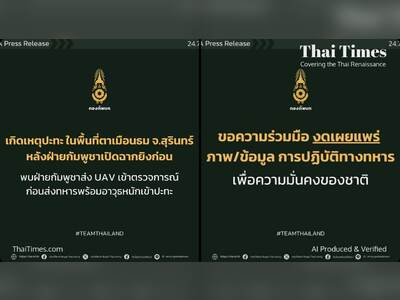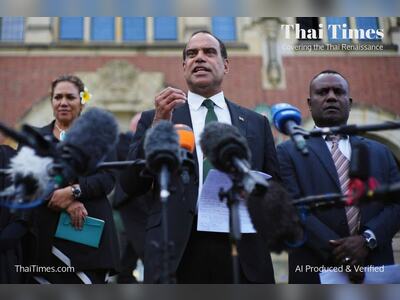Thailand Unveils Comprehensive AI Strategy to Become Regional Hub
Government aims to train millions in AI skills and invest heavily in digital infrastructure to drive economic growth and social development
The Thai government has developed a comprehensive plan to prepare the country for the widespread adoption of artificial intelligence (AI) technologies.
The plan focuses on developing a skilled AI workforce, with targets to train at least 10 million individuals as AI users, 90,000 as AI professionals, and 50,000 as AI developers within the next two years.
To support this effort, the government will invest in digital infrastructure, including cloud systems, data centres, GPU-based computing systems, and an open-source AI platform.
A national data bank will also be established to consolidate valuable datasets for AI development across various sectors.
All public agencies are expected to transition fully to digital systems by 2026. The investment in these infrastructures is expected to total at least 500 billion baht, comprising contributions from both the public and private sectors, domestically and internationally.
The government will focus on promoting the application of AI in key sectors such as healthcare, tourism, and agriculture, where it is expected to enhance efficiency and drive economic expansion.
In healthcare, AI is expected to position Thailand as a regional centre for medical treatment within ASEAN, while in tourism, it will help boost visitor numbers and spending.
In agriculture, AI will enable more efficient farming practices, resulting in higher yields and more targeted commercial and market operations.
To accelerate AI adoption, the government will support the establishment of a centre of excellence to coordinate AI initiatives across various sectors.
The plan focuses on developing a skilled AI workforce, with targets to train at least 10 million individuals as AI users, 90,000 as AI professionals, and 50,000 as AI developers within the next two years.
To support this effort, the government will invest in digital infrastructure, including cloud systems, data centres, GPU-based computing systems, and an open-source AI platform.
A national data bank will also be established to consolidate valuable datasets for AI development across various sectors.
All public agencies are expected to transition fully to digital systems by 2026. The investment in these infrastructures is expected to total at least 500 billion baht, comprising contributions from both the public and private sectors, domestically and internationally.
The government will focus on promoting the application of AI in key sectors such as healthcare, tourism, and agriculture, where it is expected to enhance efficiency and drive economic expansion.
In healthcare, AI is expected to position Thailand as a regional centre for medical treatment within ASEAN, while in tourism, it will help boost visitor numbers and spending.
In agriculture, AI will enable more efficient farming practices, resulting in higher yields and more targeted commercial and market operations.
To accelerate AI adoption, the government will support the establishment of a centre of excellence to coordinate AI initiatives across various sectors.











